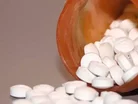Gonorrhoea 'untreatable' after becoming drug resistant

Antibiotics are proving to be less effective in treating sexually transmitted infections (STIs), in particularly gonorrhoea.
Health authorities have warned over the last five years gonorrhoea has become resistant to the drugs that are most often used to tackle it and as a result the STI is now almost untreatable.
The Health Protection Agency (HPA) in the UK is now desperately searching for new treatments for the infection.
Doctors have also been asked to use a combination of two drugs when treating patients with gonorrhoea instead of the traditionally used cefixime, to which the infection has become resistant.
To read the latest edition of Healthcare Global, click here
- ‘Text neck’ is affecting mobile phone addicts
- Boots and Weight Watchers join forces in obesity fight
- iPad’s could help restore vision in blind children
The HPA believes the mixture of the orally taken azithromycin and the injected ceftriaxone are together more powerful than cefixime.
Laboratory tests found cases of gonorrhoea with decreased susceptibility to cefixime had increased from 0 percent in 2005, to 10.6 percent in 2009 and 17.4 percent in 2010.
Experts believe the gonorrhoea infection has an “unusual ability to adapt itself” which explains its increase in drug resistance.
An expert in gonorrhoea from the HPA, Professor Cathy Ison, commented: “Our lab tests have shown a dramatic reduction in the sensitivity of the drug we were using as the main treatment for gonorrhoea.
“This presents the very real threat of untreatable gonorrhoea in the future.”
“But this won't solve the problem, as history tells us that resistance to this therapy will develop too,” she added.
“In the absence of any new alternative treatments for when this happens, we will face a situation where gonorrhoea cannot be cured.
“This highlights the importance of practising safe sex, as, if new antibiotic treatments can't be found, this will be the only way of controlling this infection in the future,” Ison explained.
Gonorrhoea is one of the most common STIs in Britain, beaten only by Chlamydia and cases of it are increasing.
HPA figures show in 2009 there were just over 15,000 new cases of the STI, but this increased by three percent to over 16,000 in 2010.
Our magazine is now available on the iPad. Click here to download it.



